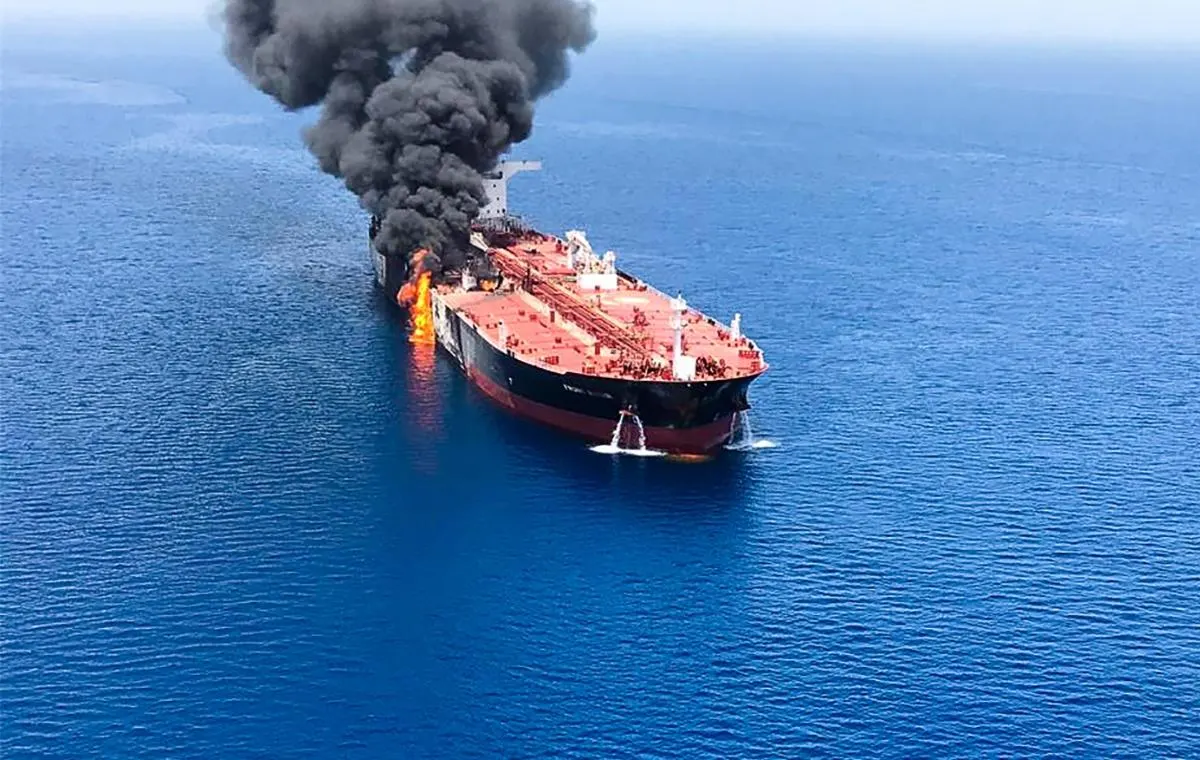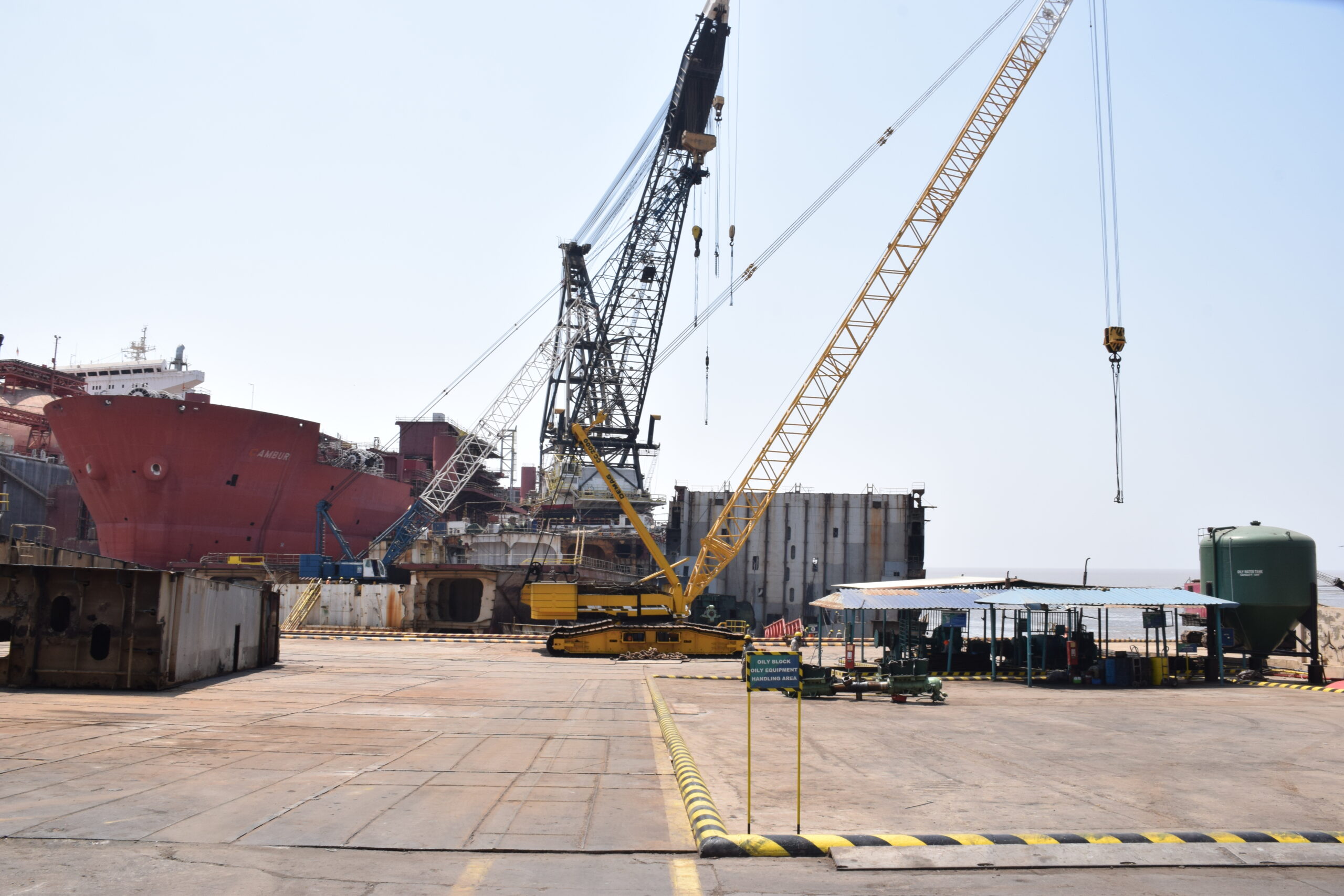Ship Recycling Market on the Brink of a Major Correction as Weak Steel Demand and Falling Freight Rates Shake Confidence: STAR ASIA
World’s leading cash buyers for ships sent for recycling, STAR ASIA, in their weekly ship recycling report, opined that the market continues to remain under significant pressure, with muted buying interest and limited vessel supply affecting overall sentiment. The global ship recycling market is entering a decisive phase marked by economic turbulence, weak fundamentals, and an impending wave of end-of-life tonnage. With dry bulk freight rates falling and global steel demand showing visible cracks, the sector is poised for a significant correction — one that may redefine price levels and trading patterns across the subcontinent’s major recycling hubs.

As shipowners begin to divest older vessels in response to weakening freight markets, supply pressures on ship recyclers are easing, offering a brief respite. Yet, in the larger picture, the dual blow of soft domestic steel demand and an oversupply of recyclable tonnage points toward an inevitable price adjustment. November 2025 is expected to become a watershed month for the industry, setting the tone for new pricing benchmarks as the market seeks equilibrium.
Global Context: Steel and Shipping Under Pressure
According to the World Steel Association (worldsteel), crude steel production across 71 reporting countries fell to 143.6 million tonnes in September 2024, a 4.7% decline from the same period last year. China, which alone accounts for more than half of global steel output, saw its production slump to 77.1 million tonnes, down 6.1% year-on-year.
This global contraction signals deep-rooted issues in industrial demand and infrastructure spending, particularly in Asia. The slowdown in China’s construction and manufacturing sectors has created ripple effects across the steel value chain, pulling down rebar prices and reducing appetite for recycled ferrous inputs — a key component of ship scrap demand.
Coupled with faltering freight markets, the sector faces a paradox: more ships are being scrapped, but the value of the steel recovered from them continues to erode.
Alang, India: A Sharp Downturn Amid Rising EU Hopes
India’s premier ship recycling destination, Alang, witnessed a dramatic reversal this week. Domestic scrap prices dropped sharply by nearly 2.5%, wiping out all gains made over the previous month. What began as a mild correction quickly turned into a full-blown retreat, leaving traders, recyclers, and brokers puzzled.
The slump is widely attributed to weakening domestic steel demand. Despite early signs of stability in September, the consumption of ship scrap steel plummeted as infrastructure projects slowed and mills cut back on procurement.
Adding a symbolic note to the week’s developments, MSC EYRA, a 10,655 LDT (light displacement tonnage) container vessel built in 1982, arrived at Alang for her final dismantling after four decades of service. Another MSC vessel, the MSC Alexa (16,227 LDT, built 1996, Italy), was reported sold at US$491 per ton, down from price levels that exceeded US$510/ton just weeks earlier. The rapid price erosion underscores the fragile market sentiment.
Yet, amid this volatility, Alang is on the verge of a major milestone — the European Union’s final audit of three yards for potential inclusion in the EU Ship Recycling List. If approved, this certification could transform India’s ship recycling landscape by opening the gates for European shipowners, who control roughly 35% of the global fleet, to send their end-of-life vessels to Alang.
Over the past two years, Alang has invested heavily in environmental and safety upgrades. Among the most notable improvements are the installation of a high-temperature rotary incinerator capable of processing hazardous waste at 1,400°C and the establishment of a dedicated trauma centre scheduled for inauguration by December 2024. These measures are part of India’s broader effort to position itself as a sustainable recycling hub, compliant with international norms.
If the EU certification is granted, Alang could join the ranks of globally recognised green recycling centres, providing a crucial alternative to limited European facilities and reinforcing India’s maritime recycling leadership.
For now, however, the festive season slowdown — coupled with erratic market conditions — suggests limited activity in the coming weeks. The true market direction may only become clear after the Diwali holidays.
Chattogram, Bangladesh: Political Turmoil Stalls Business
In Chattogram, Bangladesh’s ship recycling capital, the market has virtually ground to a halt. Political unrest and the formation of an interim government have disrupted trade operations, while the issuance of letters of credit (LCs) remains constrained to a few privileged buyers.
Environmental regulators have intensified inspections, forcing many substandard yards to halt operations until they meet Ship Recycling Facility Plan (SRFP) requirements. This has compounded the slowdown, leaving the country’s recycling capacity underutilised.
Domestic steel demand, already weak, has worsened. Prices of ship scrap are falling daily as mills reduce intake. With yards unable to secure import permits and financial liquidity drying up, business sentiment is at its lowest point in months.
Recyclers report that offers for new vessels have become scarce, with very few shipowners finding buyers. Until political and financial stability return, Bangladesh’s recycling sector is likely to remain on the sidelines, with limited or no new beachings anticipated.
Gadani, Pakistan: Waiting Game Continues
Across the border in Gadani, Pakistan, recyclers face a similar predicament. Although demand for ships remains moderate, the mismatch between asking prices and local market fundamentals has made trading unviable. Most buyers are adopting a wait-and-watch strategy, choosing to rely on imported ferrous scrap instead of ship scrap to meet their short-term needs.
With the Pakistani rupee stabilising around PKR 277.6 per US dollar, the focus has shifted to maintaining liquidity and managing inventory rather than expanding purchases. Until domestic steel consumption recovers, recyclers are expected to remain cautious.
Aliaga, Turkey: Stability Amid Softness
In Aliaga, Turkey, the ship recycling market remains subdued yet relatively stable. Domestic procurement prices have stagnated as import scrap prices show signs of softening. Turkish mills, burdened by weakening rebar sales, are exerting downward pressure on scrap values.
This week, delivered ship scrap prices in Turkey settled at around US$365 per ton, in line with the Turkish lira closing at TRY 34.29 per US dollar. No new ship sales were reported, with most suppliers resisting further reductions in offer levels. However, market insiders warn that any influx of distressed cargoes could tip prices lower in the near term.
Scrap and Currency Market Overview
Across the subcontinent, ferrous scrap trade activity has been muted. In India, indicative offers for shredded scrap from the U.S. and Europe were in the US$395–398/ton CFR Nhava Sheva range, while buyers held firm at US$390–392/ton. For HMS (80:20), offers hovered around US$375–380/ton CFR, but bids remained below US$370/ton.
In Pakistan, similar patterns emerged, with offers near US$395–398/ton CFR Qasim, while some mills secured small quantities at US$385/ton. Bangladesh, burdened by high inventories, saw negligible activity, with shredded scrap offers from Australia and New Zealand in the US$400–405/ton CFR Chattogram range.
The Turkish imported scrap market also stayed flat as mills awaited lower prices amid declining rebar sales. Sellers in the U.S. and Europe resisted significant discounts, citing strong domestic collection costs.
Currency movements remained largely stable across markets:
-
USD/INR: 84.08 (–0.02%)
-
USD/BDT: 119.56 (+0.03%)
-
USD/PKR: 277.63 (+0.09%)
-
USD/TRY: 34.29 (–0.18%)
Market Sentiment: Weak and Cautious
According to the latest market snapshot, ship recycling prices are now trending as follows (in USD per LDT):
| Destination | Tankers | Bulkers | General Cargo | Containers | Sentiment |
|---|---|---|---|---|---|
| Alang, India | 460–470 | 450–460 | 440–450 | 480–490 | Weak |
| Chattogram, Bangladesh | 460–470 | 450–460 | 440–450 | 480–490 | Weak |
| Gadani, Pakistan | 460–470 | 440–460 | 430–440 | 460–470 | Weak |
| Aliaga, Turkey | 360–370 | 340–350 | 350–360 | 370–380 | Stable |
Compared to the five-year average, current price levels are significantly lower than the peaks of 2021–2022, when container and tanker vessels fetched over US$700 per ton in some regions.
Looking Ahead: November to Define the New Normal
The coming weeks could be decisive for the global ship recycling industry. With freight rates dropping, steel markets weakening, and political instability in key recycling nations, the market is bracing for a major price reset.
Alang’s potential EU certification could provide a much-needed positive catalyst, but short-term fundamentals remain weak. The expected influx of tonnage will test recyclers’ financial resilience and operational efficiency.
As one industry analyst aptly summarized:
“The ship recycling market is entering a new cycle — where sustainability, compliance, and financial prudence will decide who survives the storm.”
For now, the sector waits — eyes on November — as the tide of market change gathers strength.
Author: shipping inbox
shipping and maritime related web portal








